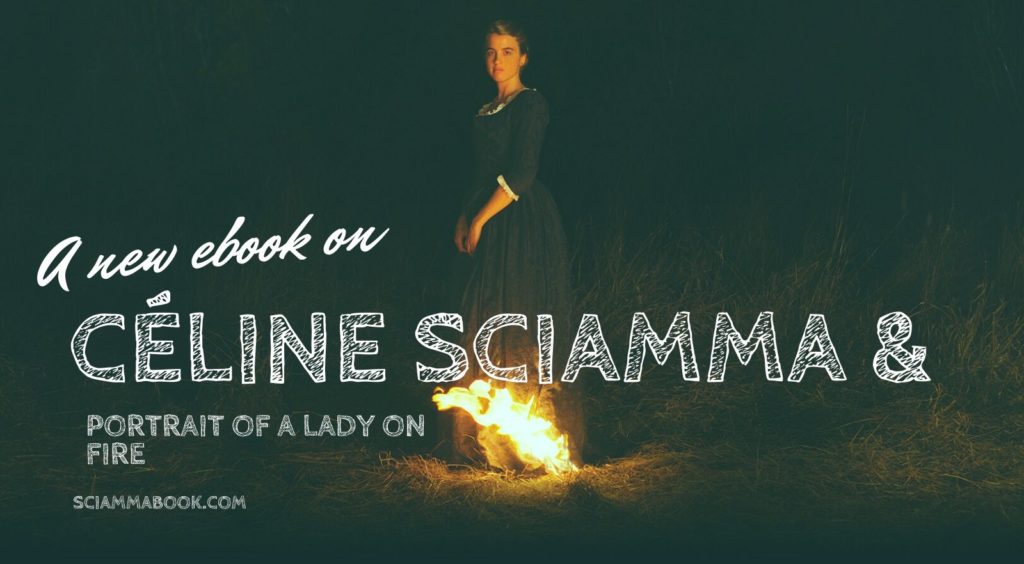Editors Alex Heeney and Orla Smith pick the fifteen best films of Berlinale 2021, from Ninjababy to Petite Maman.
Check out all our Berlinale coverage.
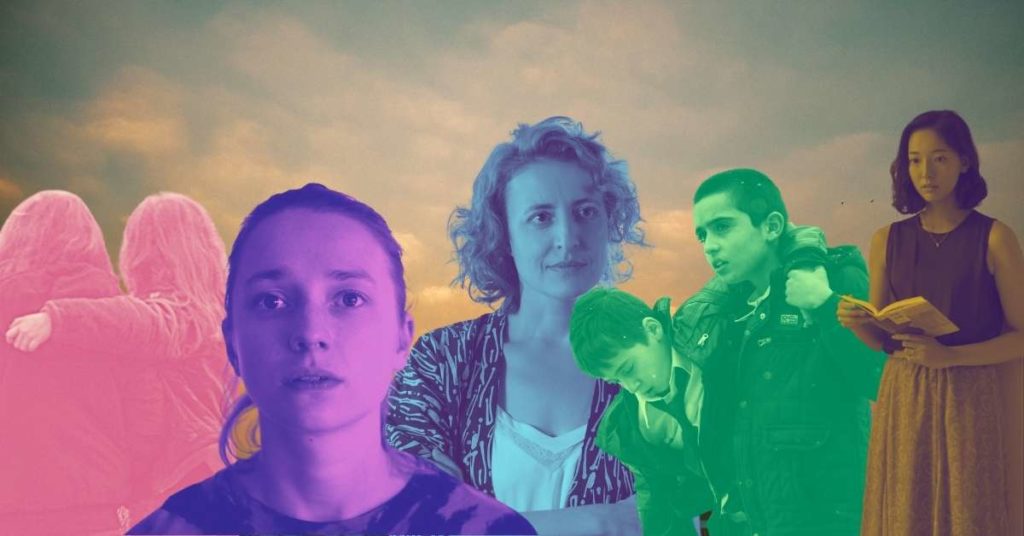
Discover one film you didn’t know you needed:
Not in the zeitgeist. Not pushed by streamers.
But still easy to find — and worth sitting with.
And a guide to help you do just that.
After the America-centric programming of Sundance, which disappointed us, it was a pleasure to virtually attend the Berlin Film Festival last week and indulge in world cinema. For both of our attending editors, Alex Heeney and Orla Smith, it was our first time “at” the Berlinale. After the quality of this year’s programming, we’d both be eager to go back in person. More so than Sundance, Cannes, or TIFF, it felt like the programming at this year’s Berlinale was influenced more by quality than big names — a rarity at such a high profile film festival.
We discuss our thoughts on the festival as a whole in more detail on next Wednesday’s podcast episode, which is part one of a two-part podcast discussion on the 2021 Berlinale. Subscribe to the podcast so you don’t miss the episode.
We were easily able to choose fifteen films that we found interesting, inspiring, and engaging. Even then, we had to leave some worthy contenders off, so we’d like to give a quick shoutout to Nous and All Eyes Off Me, two flawed but worthwhile films that we’d recommend seeking out.
We also won’t be including It’s a Sin, since it’s a TV show that’s already aired in many countries around the world, and thus we don’t feel the need to spotlight it. Then again, we loved it, so look out for a podcast episode on the series soon!
15. Summer Blur (Han Shuai)

From our review: “The first time we see Guo (Huang Tian) in Han Shuai’s feature debut, Summer Blur, she’s in bed with her phone, because the closest relationship she has in the film is with her mother’s voicemail. Soon, her younger cousin, with whom she shares a bed, invades the frame with her arm, which Guo pushes away. It’s a reminder of how, even in sleep, Guo has no space of her own. Set over the course of a blazing hot summer in Wuhan, Summer Blur is the story of Guo realising how little she, as a working-class girl, is valued in the world — by her family and beyond — and how pervasive misogyny is: everyone is out to exploit her and other women. Even her home is not her own, having been sent to live with her aunt and uncle because her mother, a former model, is too busy living her life in Shanghai to take care of Guo — or even answer her phone calls.” Read the full review.
14. Night Raiders (Danis Goulet)

From the introduction to our interview with Danis Goulet: “‘When there’s something you really want to say, you can hit it in almost a harder way in genre because you’re not constrained by reality,’ Goulet told me. ‘I think you can counter skepticism when you’re dealing with real history.’ In Night Raiders, Goulet replaces Canada’s RCMP (or ‘Mounties’), an international symbol of friendly and adorable police, with what they were really designed to do: hold militaristic power over vulnerable (in real life, Indigenous) people, using violence without a second thought, in an attempt at cultural genocide. The move to sci-fi also allows Goulet to tell a more contemporary story of Indigeneity, inspired by Standing Rock and Idle No More, in which Indigenous People around the world are uniting against global colonialism, and young people are changing the world. That ethos dovetails nicely with the story behind the film, which is an Indigenous co-production between Canada and New Zealand.” Read the full interview.
13. What do we see when we look at the sky? (Alexandre Koberidze)
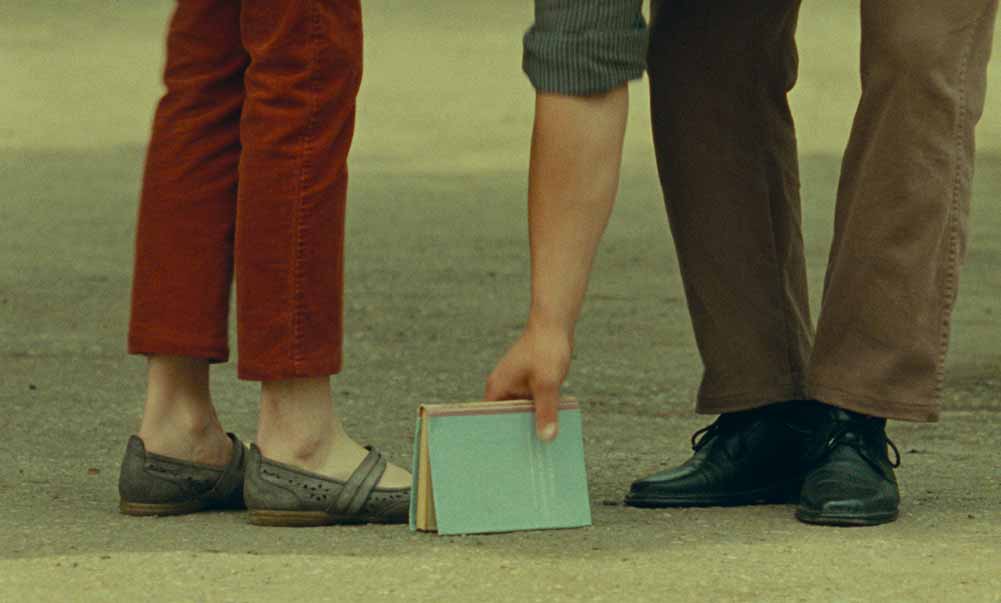
From our review: “A couple’s meet cute unfolds from the calves down, as we watch their shoes face each other, and hesitantly move. The end of a soccer match is signalled by the pile up of dirty jerseys in the locker room. A woman says hello to her roommate with a delicate brush to her head, which is resting on a table. These are the kinds of moments that writer-director-editor Aleksandre Koberidze chronicles in What do we see when we look at the sky? At once a portrait of the Georgian city of Kutaisi — its inhabitants, streets, gathering places — and an exercise in telling this story episodically, through vignettes with minimal dialogue and often without faces. When the meet-cute couple, Lisa (Ani Karseladze and Oliko Barbakaze) and Giorgi (Giorgi Ambroladze and Giorgi Bochorishvili), wake up one day and find themselves in different bodies, it barely phases us as strange, because Koberidze encourages us to focus on the small details rather than the big ones.” Read the full review.
12. Nelly Rapp – Monster Agent (Amanda Adolfsson)
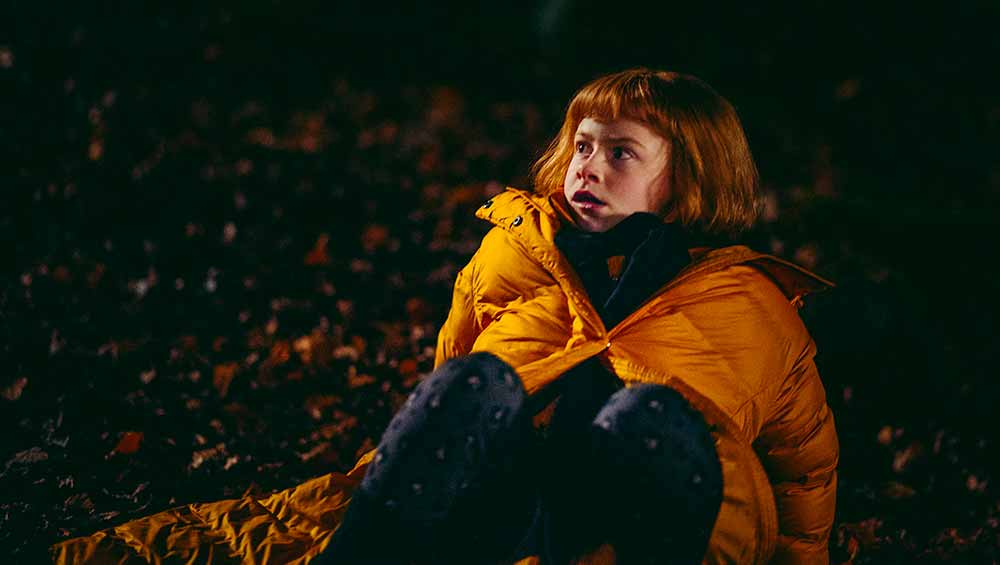
Nelly Rapp is a delightful and often hilarious monster and haunted house movie for the whole family, in which the monsters are more misunderstood misfits than imminent dangers, and the houses aren’t haunted at all. When ten-year-old Nelly Rapp (Matilda Gross) is due to spend a week with her uncle Hannibal (Johan Rheborg) in his gothic mansion, she is excited and intrigued, especially when she hears there are monsters in the basement. Soon, she discovers that vampires, werewolves, and all kinds of monsters are real, and that her deceased mother was part of a team of adults, the monster agents, dedicated to protecting monsters from the world and the world from monsters.
When told she has to catch a monster to join the team, she’s excited to execute this plan, but finds it derailed when she meets Roberta (Lily Wahlsteen), a 100-year-old Frankenstein monster who is stuck at age twelve and obsessed with baking, as she has the heart of a pastry chef. The precocious and eccentric Nelly had always struggled to make friends at school, but she finds kindred spirits in Roberta and the other monsters — among them, a vegan vampire who takes iron supplements. When a power-hungry member of the monster agents threatens to push the group into creating a dangerous rehabilitation scheme — a combination of lobotomy, plastic surgery, and retraining, like persuading zombies to eat broccoli — it falls to Nelly to save the day. She must remind everyone that compassion always wins and monsters aren’t so dangerous. The result is a heartwarming film about finding your crowd, accepting your eccentricities, and discovering that the reclusive gamer next door just might be a vampire. Alex Heeney
Read our interview with Amanda Adolfsson on Nelly Rapp.
11. Bad Luck Banging or Loony Porn (Radu Jude)
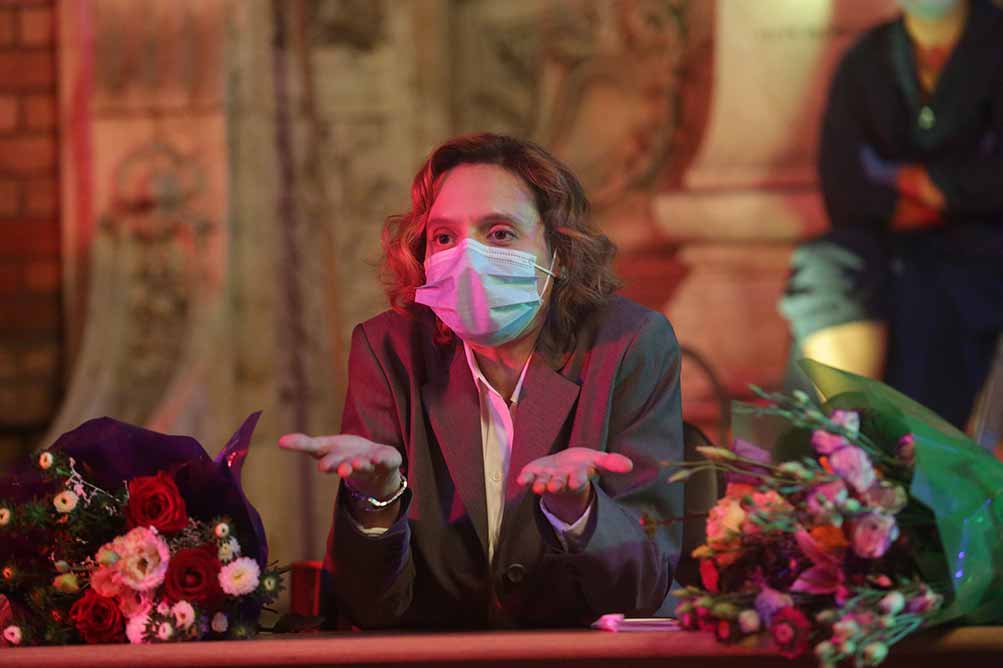
The winner of the Golden Bear at this year’s festival was Bad Luck Banging or Loony Porn, a left field choice because of just how bizarre it is, but predictable in the sense that it’s very much a “film of the moment”. Still, it’s certainly a statement for the jury to award top honours to a film that begins with an extended unsimilated sex scenes. The scene in question is an extremely OTT, comical homemade porn video made by the film’s main character, school teacher Emi (Katia Pascariu). When it accidentally leaks onto the internet, the parents at her school call a parent-teacher meeting to subject Emi to their moral-panicky rage and attempt to get her fired.
It was filmed during COVID and incorporates COVID into the world of the film. Poor mask wearing becomes an indicator of moral failure, such as when an indignant parent claims she’s “trying to do what’s best for the children” while wearing her mask under her nose. It feels cathartic to watch Jude relentlessly mock anti-maskers. It’s also incredibly anxiety-inducing, as the film reflects how little people care about actually protecting others, preferring to focus their outrage on an innocent woman’s sex life.
In the hilarious middle section of the film, Jude presents a series of visual jokes and puns, many of which relate to shameful parts of Romanian history. This vital piece of the film’s puzzle serves to place selfish, unsafe responses to COVID as just the latest in a long line of corrupt behaviour in Romania (although this behaviour is certainly recognisable in other parts of the world, too). Of course, it’s not long before the parents’ facade of polite concern is “unmasked” to reveal virulent anti-semitic and sexist tirades. Orla Smith
Listen to the Bonus (Members Only) podcast on COVID in the movies and Bad Luck Banging or Loony Porn
10. Stop-Zemlia (Kateryna Gornostai)
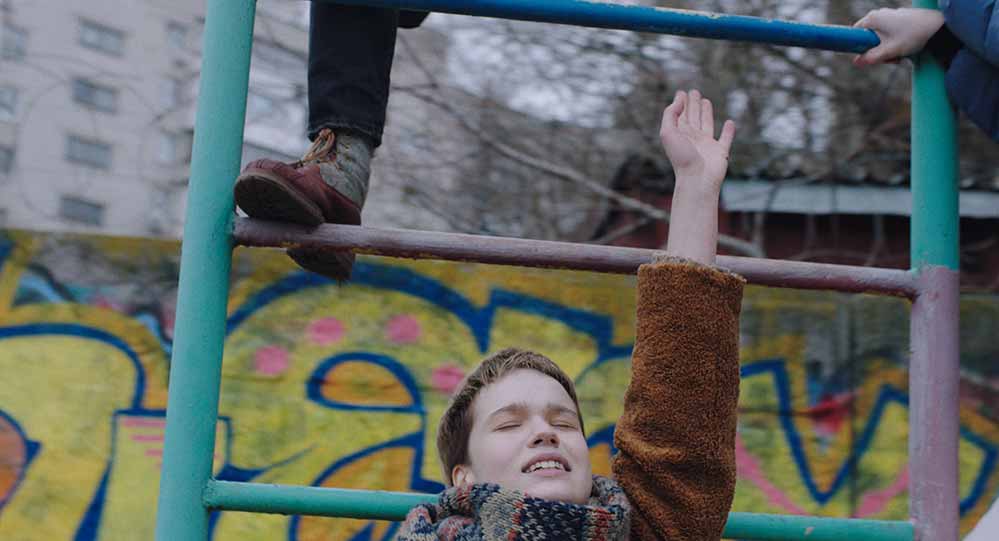
Set in Ukraine, Kateryna Gornostai’s Stop-Zemlia is an ensemble coming-of-age story in which a whole class of graduating high school students deal with heartbreak, friendships, mental health issues, and family troubles. At the centre of the story is Masha (Maria Fedorchenko), a smart, privileged girl with absent parents, and her two best friends. Masha has an unrequited crush on Sasha (Oleksandr Ivanov), which Gornostai uses as an excuse to follow his story, including his troubles with his alcoholic mother. Throughout, Gornostai paints a portrait of friendships both close and casual, and strong feelings that the students are often too scared to act on. It’s often messy because of its wide scope, but that’s also part of Stop-Zemlia’s appeal: the interconnectedness of these relationships and the extreme highs and lows of being a teenager. AH
Read our interview with Kateryna Gornostai
9. Short Vacation (Kwon Min-pyo, Seo Han-sol)
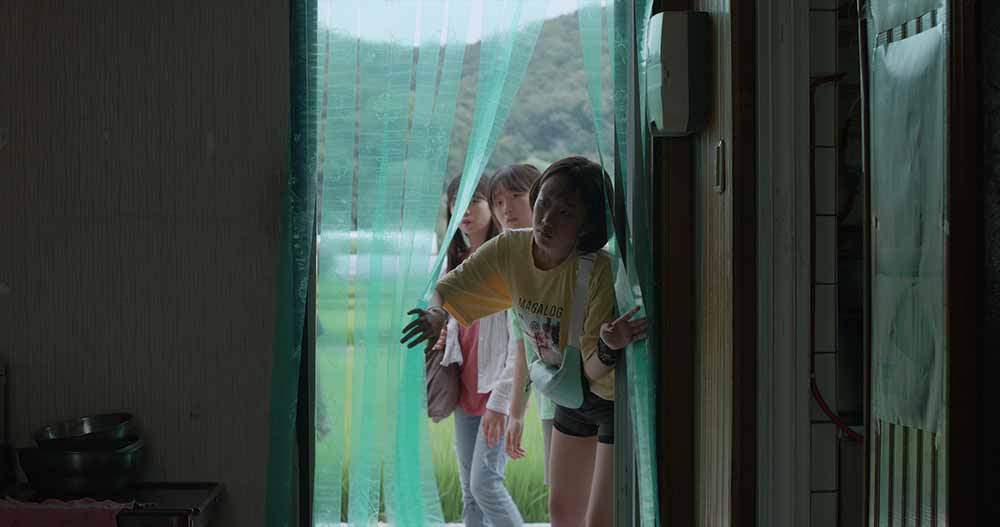
From our review: “In Kwon Min-pyo and Seo Hansol’s Short Vacation, four thirteen-year-old girls are asked to photograph ‘the end of the world.’ Or at least, that’s the prompt their photography club teacher gives them for summer homework. Set mostly over one hot summer day, the intimidating vastness of life is contrasted against the mundane trivialities of these girls’ lives and their friendships. What is ‘the end of the world’ to teenage girls whose primary concerns are hanging out with their friends and making sure they get home before curfew?” Read the full review.
8. Miguel’s War (Eliane Raheb)
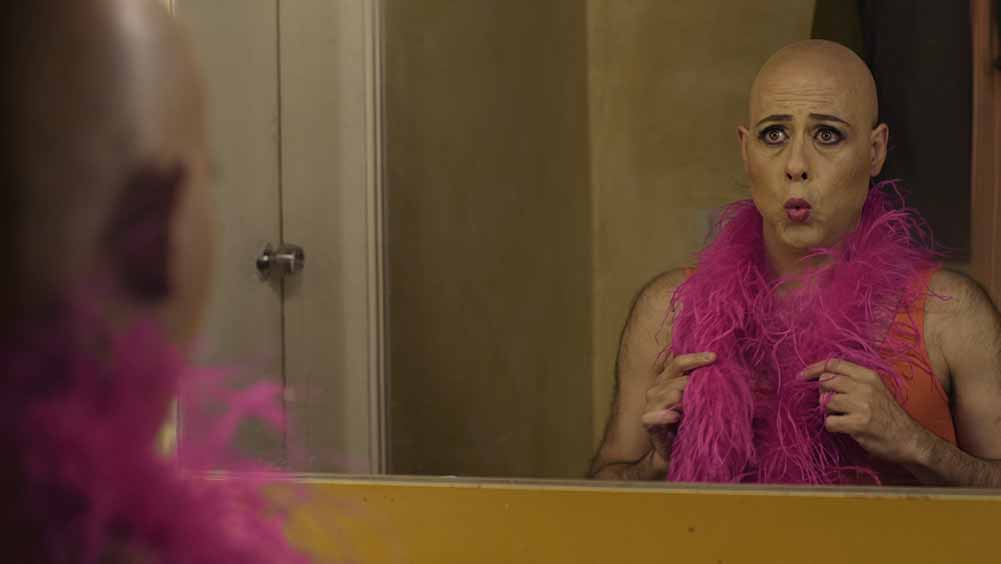
From the introduction to our interview with Eliane Raheb: “I realised that Miguel’s War was going to be a boundary-pushing documentary as soon as the film’s subject, Miguel Alonso, responded to a probing question from director Eliane Raheb by laughing and exclaiming, “What a horrible bitch!” Raheb tells the story of Miguel, from his childhood in Lebanon, to his participation in the Lebanese Civil War, to his life in Spain, where he lives today, as an out gay man. But she’s just as interested in exhibiting the difficult process of getting Miguel to open up as she is recounting the facts of his life. This is a film about trauma — how it distorts and represses memory, and makes it hard to be honest with yourself and other people. For Raheb, it was just as important to include takes of Miguel (jokingly) calling her a bitch, declining to answer questions, and struggling to recall the truth than it was to include his eventual honest answers.” Read the full interview.
7. Mr. Bachmann and His Class (Maria Speth)
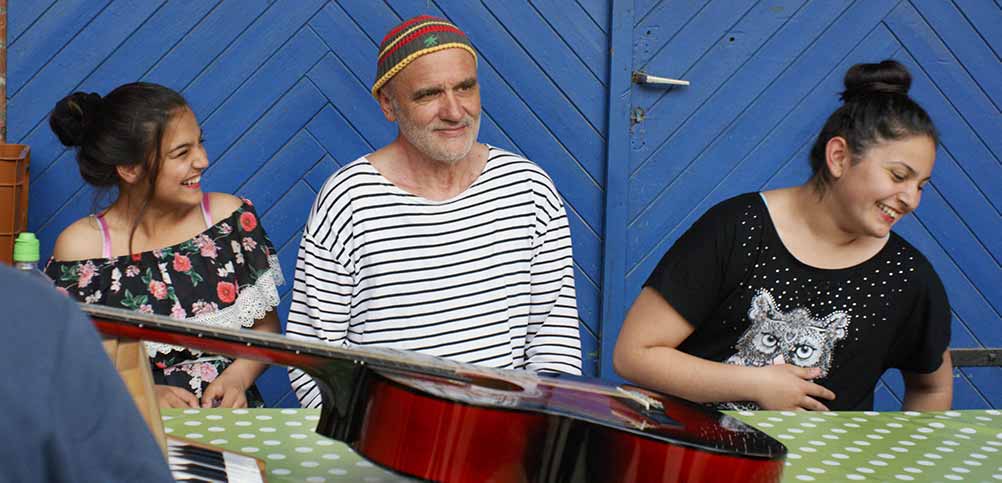
The three-and-a-half-hour length of Maria Speth’s documentary, Mr. Bachmann and His Class, might make you think of the work of Frederick Wiseman. But Mr. Bachmann is less interested in institutions than it is in character growth. Over the course of one school year, Speth follows Dieter Bachmann, a soon-to-be-retired school teacher, and his last class of pupils.
In the small and rural city of Stadtallendorf, Germany, many of the pupils are immigrants or children of immigrants, and for some, German isn’t their first language. In an education system that might otherwise cast these children aside, Bachmann carves a space for them to grow. His unconventional teaching methods — allowing naps during school time, holding musical jamming sessions with the pupils — nurture the kids. He encourages open dialogue in his classroom as a way to teach his kids empathy and to persuade the higher achieving amongst them to help those who are struggling. It’s a film that, I’m sure, will encourage many people to become teachers, because it shows how much of a difference one teacher can make if they’re willing to fight for their students. OS
6. Ninjababy (Yngvild Sve Flikke)
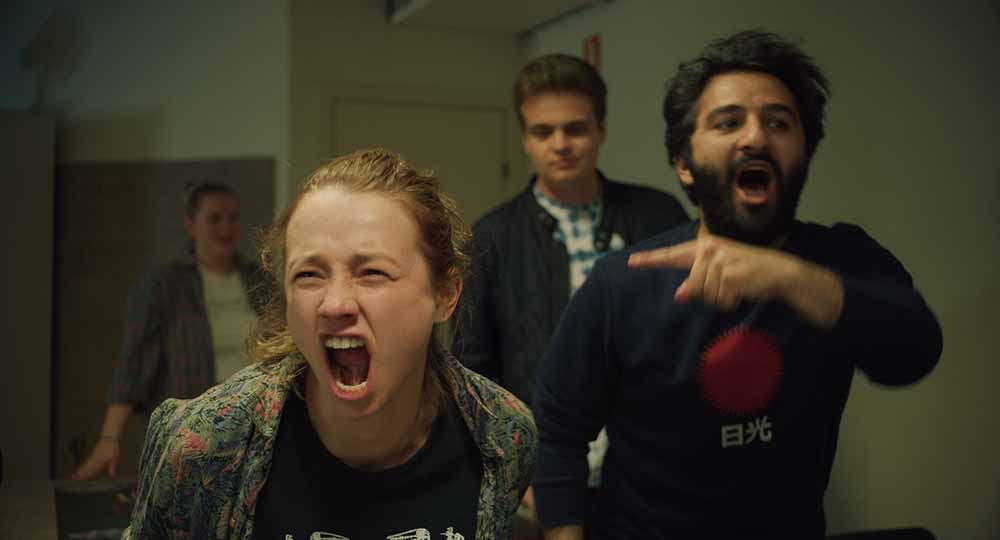
From the introduction to our interview with Yngvild Sve Flikke and Kristine Thorp: “Rakel (Kristine Thorp), twenty three, is a bit of a mess — but joyfully so. ‘She’s really just enjoying life,’ said Yngvild Sve Flikke, writer-director of the delightful Ninjababy, of which Rakel is the main character. ‘She doesn’t know what she’s going to be. If she wants sex, she’s having sex, and she doesn’t really remember who she had sex with.’ Her hair is permanently greasy, hanging loose or pulled back into a functional ponytail, and her clothes are mismatched and oversized (although enviably comfy). In short, she hasn’t quite figured herself out yet, but she’s in no rush to. A spanner is thrown in the works when an unwanted pregnancy threatens to catapult Rakel toward responsibility, right at the moment in her life when she was revelling most in irresponsibility.” Read the full interview.
Listen to the podcast on Ninjababy and Obvious Child and rom-coms featuring unwanted pregnancies.
5. Fabian: Going to the Dogs (Dominik Graf)
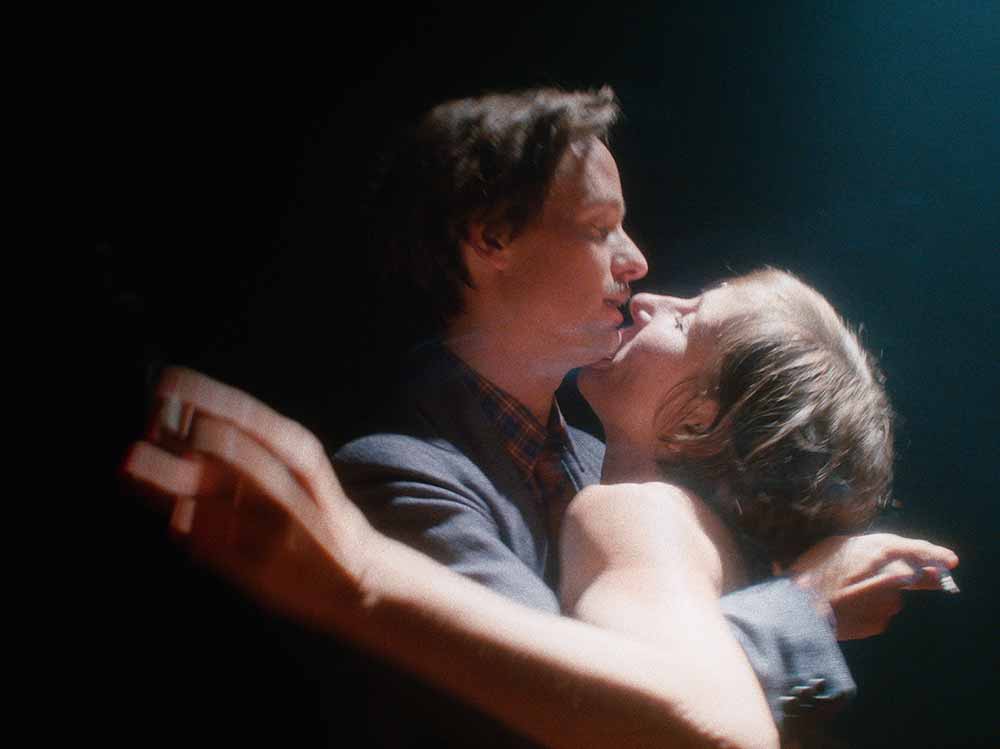
Based on the 1932 novel Fabian or Going to the Dogs by Erich Kästner, Dominik Graf’s film adaptation transports us to a 1931 Berlin. It looks a lot like the present day, but with period clothing, Nazi pamphlets (and brownshirts), and the occasional period footage of the nightlife. Mixing Super 8 footage with digital to capture the characters, and occasional archival footage to evoke the time, Graf’s dynamic film is vivacious, unpredictable, moves at a clipped pace, and is never boring despite its three-hour runtime. While the sets and costumes are period-accurate, the performances are entirely modern, without any affects of the past, which is just one of many smart ways Graf connects the 1931 action to our present day reality.
At the centre of the story is Fabian (Tom Schilling), an unhappy copywriter with a PhD in English, who falls in love with a woman (Saskia Rosendahl) he can’t afford to love, loses his job amidst a sea of unemployment, and suddenly finds himself out of place as a moralist in an increasingly amoral world. Over the course of the film’s three-hour runtime, we get to know Fabian, his aspiring actress girlfriend, his activist best friend (Albrecht Schuch), and his lovely mother. At first, we watch them enjoy the pleasures of the Weimar Republic, but soon, they face increasing despair in a world where Nazi ideology is becoming more mainstream and having convictions is a luxury. At once a love story, a coming-of-age story, and the story of a society going to the dogs, Fabian is vibrant, funny, depressing, ultimately horrifying, but always intellectually involving. Though somewhat episodic in its structure, it is a character drama through and through, and it’s always a pleasure to spend time in the company of these characters, even as they go through despair. AH
Listen to the podcast on Fabian – Going to the Dogs and the rise of totalitarianism.
4. Brother’s Keeper (Ferit Karahan)
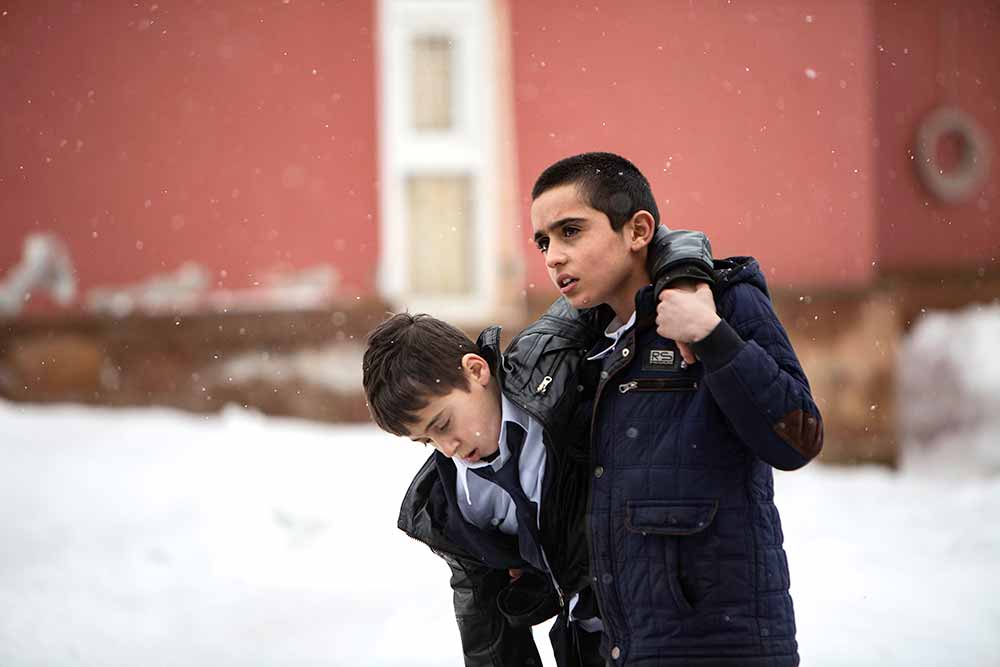
From our review: “During the opening scene of Brother’s Keeper, I wondered, am I watching a dystopian film? A windowless shower room, filled with pre-teen boys stripped down to their underclothes, offers no clue of period or setting. However, the way the boys are treated seems alien to basic ideas about how we should treat children. In fact, Brother’s Keeper isn’t set in the future or the past. This is modern day Eastern Anatolia, Turkey, and inspired by writer-director Ferit Karahan’s own childhood experiences at a boarding school for Kurdish boys. In the press notes, Karahan explains, ‘The number of boarding schools exceeds thousands, especially in regions where Kurds are densely populated. I studied at a boarding school in the early 1990s. When I started looking for locations, I realized that nothing had changed except the small details.’” Read the full review.
Read our interview with director Ferit Karahan on Brother’s Keeper
3. Wheel of Fortune and Fantasy (Ryûsuke Hamaguchi)
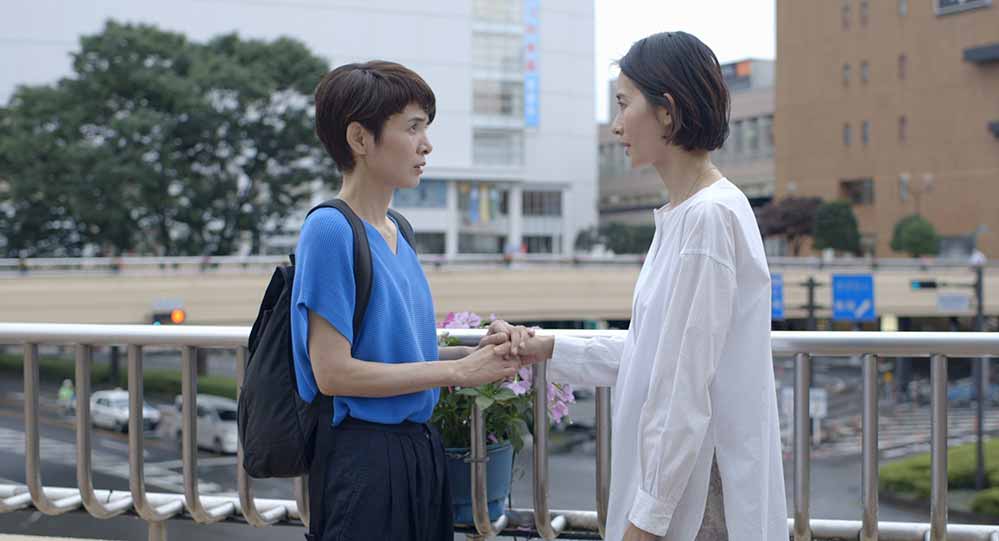
From the introduction to our interview with Ryûsuke Hamaguchi: “A young woman discovers that her best friend went on a date with her ex-boyfriend, which makes her wonder if she’s still in love with him. An aimless woman in her thirties half-heartedly attempts to seduce her old college professor, at the request of the younger man she’s sleeping with. A middle-aged woman attends her high school reunion in the hopes of reuniting with an old flame, but finds an unexpected connection, instead. Three short stories, loosely connected by coincidence, make up Ryûsuke Hamaguchi’s Wheel of Fortune and Fantasy. The film just won the Silver Bear at the Berlinale — the festival’s second-most prestigious award — and deservedly so, as Hamaguchi’s beautifully written, elegantly crafted triptych is a melancholy delight.” Read the full interview.
2. I’m Your Man (Maria Schrader)
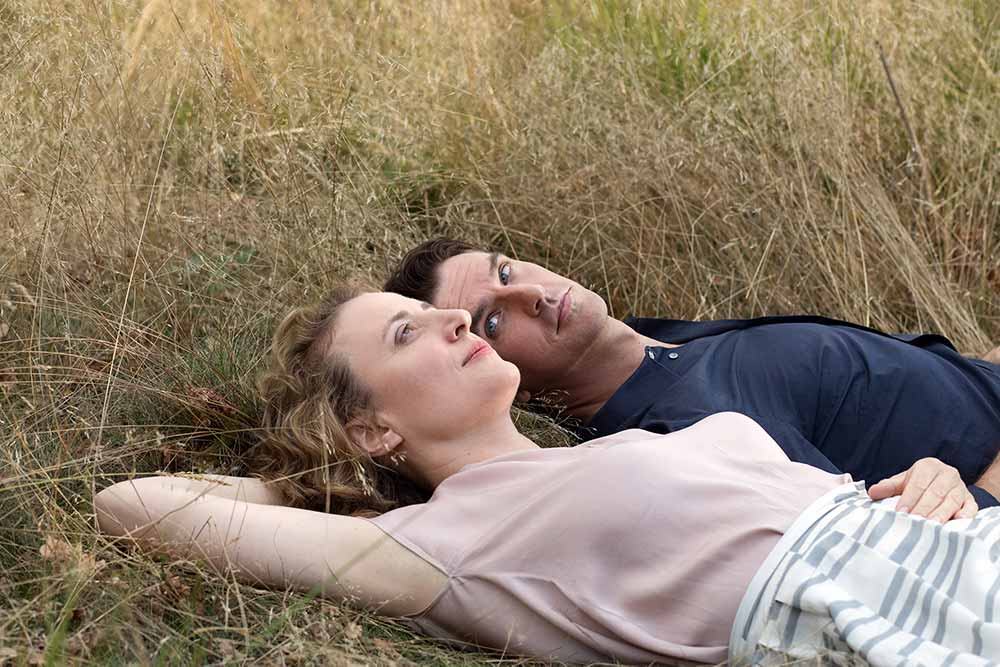
From our review: “How big is the gulf between what we think we want from romantic relationships and what we actually need or would settle for? Is part of the joy of a relationship the knowledge that you’re needed? Is a flawed partner more attractive because they make you feel less alone for also being flawed? How do we change to suit our partners in a relationship? Wouldn’t it be convenient if you could store your partner in the spare room with the vacuum cleaner and the exercise bike? These are some of the many complex questions at the centre of Maria Schrader’s Berlinale competition film, I’m Your Man. In the film, cuneiform researcher Alma (Maren Eggert) is asked to test out a new AI robot, Tom (Dan Stevens), who has been designed to be her perfect man. For three weeks, he’ll live with her and learn from her, and at the end, she’ll write a report about the experience, evaluating what he’s like as a partner.” Read the full review.
Listen to our podcast on I’m Your Man and About Time: Sci-fi love stories
1. Petite Maman (Céline Sciamma)
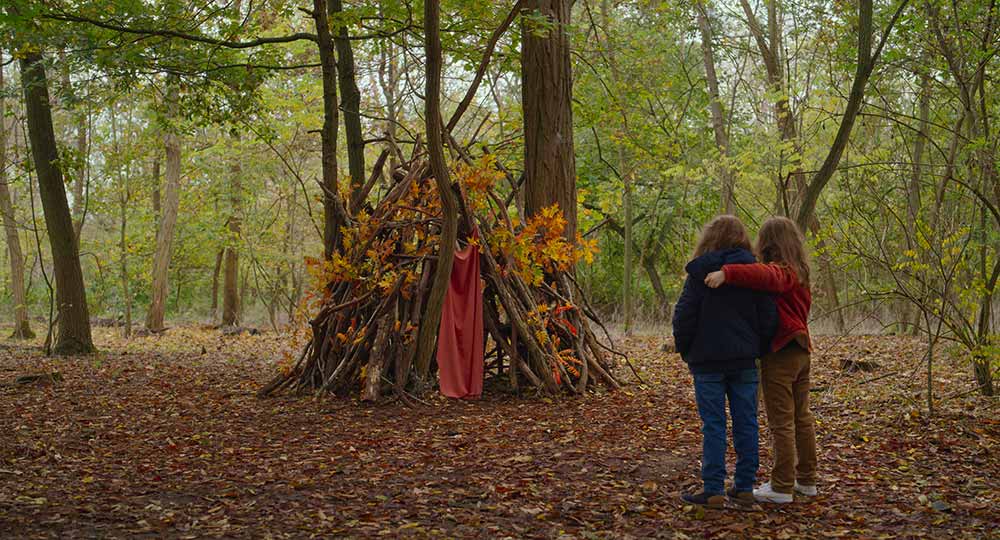
From our review: “In Céline Sciamma’s fifth feature, Petite Maman, getting to know your mother is like chasing after a ghost. Parents are elusive, in life and death, living in an adult world that, as a child, you only ever get to visit. The disconnect between parent and child is in the constantly moving camera of the opening scene, which follows eight-year-old Nelly (Joséphine Sanz) as she says goodbye to the many women in the hospital where her grandmother recently died, chasing the goodbye she didn’t get to have with her own grandmother. And in the first moment of stillness, when Nelly’s mother, Marion (Nina Meurisse), looks out the window of her mother’s room, at the grass and trees below, exhaustedly resting on a table, as if she might find her mother outside. As the camera pulls back, we feel the weight of Marion’s grief — and Nelly’s absence from the frame. They’re both experiencing loss, but it’s not quite a joint experience. Mother and daughter are moving at different speeds, in different rhythms. The camera reveals Nelly’s perspective, watching from behind, aware of her mother’s slumped physique, but unable to reach it.” Read the full review.
Listen to the podcast on Petite Maman.
Purchase a copy of our ebook on Céline Sciamma: Portraits of resistance: The cinema of Céline Sciamma
We’ll keep you up to date with how to watch the best films of Berlinale 2021 when they screen at future festivals or land on VOD.
Subscribe to the Seventh Row newsletter to stay in the know.
Subscribers to our newsletter get an email every Friday which details great new streaming options in Canada, the US, and the UK.
